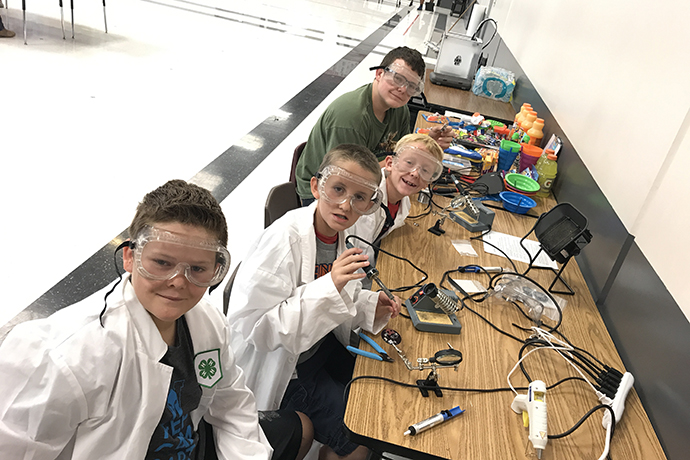USU Extension 4-H STEM Partnership with Coral Canyon Elementary School Wins $100,000 in Grant Funding
 Utah State University Extension 4-H in Washington County recently selected Coral Canyon Elementary School as its first STEM Partner School through a strategic evaluation process that considered the school's demographics, diversity and leadership aptitude of administration and faculty.
Utah State University Extension 4-H in Washington County recently selected Coral Canyon Elementary School as its first STEM Partner School through a strategic evaluation process that considered the school's demographics, diversity and leadership aptitude of administration and faculty.
"We are honored to be selected for this recognition and designation as a USU Extension 4-H STEM Partner School," said Warrin Richins, Title 1 coordinator at Coral Canyon Elementary School. "The objective of this partnership is to provide more enriching STEM resources and opportunities to our students."
In this new partnership, USU Extension 4-H will provide the school with access to STEM (science, technology, engineering, and mathematics) resources such as micro-controllers, soldering and robotics kits and computer science curriculum. The partnership also includes ongoing professional development and support for administration and faculty.
The partnership kicked off in September with a grant writing workshop that helped Coral Canyon apply for $100,000 in funding from the Utah STEM Action Center to start computer science and robotics afterschool 4-H clubs.
"The support from USU 4-H is already paying off,” Richins said. “Just last month we were notified by the STEM Action Center that our grant application was accepted!"
This funding comes at an opportune time as Google and 4-H are partnering on a new computer science and computational thinking initiative, with Utah State University Extension 4-H leading the way for the rest of the country.
"We are enthusiastic about this new relationship with Coral Canyon Elementary and the funding that will bring cutting edge STEM education to their students," said Paul Hill, associate professor at Utah State University Extension. "An understanding of computer science is increasingly essential in today’s world, and whether these youth want to become pilots, farmers, doctors, teachers or entrepreneurs, they will be better positioned to achieve their dreams in the 21st century if they have some type of background in computer science and computational thinking. By teaching students to program, we also open up their minds to the possibilities of solving problems in novel ways."
For more information about this partnership, email Paul Hill at paul.hill@usu.edu or Warrin Richins at warrin.richins@washk12.org.
Writer and Contact: Paul Hill, paul.hill@usu.edu


 Utah 4-H & Youth
Utah 4-H & Youth